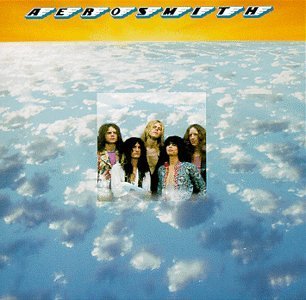
Aerosmith (1973)

1.Make It
2.Somebody
3.Dream On
4.One Way Street
5.Mama Kin
6.Write Me
7.Movin' Out
8.Walking the Dog
There’s something irresistibly raw and alive about Aerosmith’s debut album—a sonic portrait of a scrappy Boston bar band already well on its way to becoming one of the most iconic acts in American rock. Though their 1973 self-titled effort may lack the polish of later hits, it throbs with grit, ambition, and a smoky blues-rock core that defined the early years of a band more interested in sweat and sleaze than stadium lights. This was no fluke; it was the real deal, a band determined to carve their own place in the American hard rock pantheon.
From the first needle drop, it’s clear the album was more a promise than a product. Make It, which kicks things off, feels like a standard-issue opener—upbeat, certainly, but more cautious than commanding. Yet that caution fades quickly. By the time you hit Somebody, a swaggering blues-rock burner brimming with Joe Perry’s unruly riffage and Steven Tyler’s vocal acrobatics, you know you're hearing a group capable of much more than bar-band boogie. Tyler’s voice, slightly restrained on this first outing, still manages to squeal, moan, and seduce its way through lyrics that blur the line between desire and desperation.
Mama Kin is the clear breakout—a future live staple and perhaps the first crystallization of the classic Aerosmith sound. It’s a lean, punchy, strutting number that’s equal parts Stones, Yardbirds, and something uniquely theirs. And Dream On, of course, is the wild card—an achingly theatrical ballad anchored by Tyler’s falsetto and the band’s willingness to stretch beyond their barroom comfort zone. Though it would take years before the track got the recognition it deserved, Dream On remains a towering achievement for a debut album. If the album falters, it does so around the edges. The cover of Walkin’ the Dog while fun, feels obligatory and slightly anonymous—more pub filler than definitive statement. Likewise, Write Me and One Way Street show the band leaning heavily into the bluesy structures they admired, but occasionally without the finesse or originality they’d later develop.
Still, there’s no mistaking the intent or potential. The feel is real. The hunger is audible. Even the production—with its unrefined corners and analog charm—feels like the right setting for a band figuring out just how big and loud they were going to get. If Tyler doesn’t always sound like “himself” yet, that’s only because he hadn’t finished inventing who that was. And when it all comes together—on the back half of Movin’ Out, say, or the stomping middle bars of Somebody—you get a glimpse of the chaos and charisma that would carry them through a decades-long career.
In retrospect, Aerosmith wasn’t just a first album. It was a declaration. Loud, lusty, and slightly unhinged, it gave the world a taste of a band not yet in control of their powers—but already dangerous enough to demand attention.